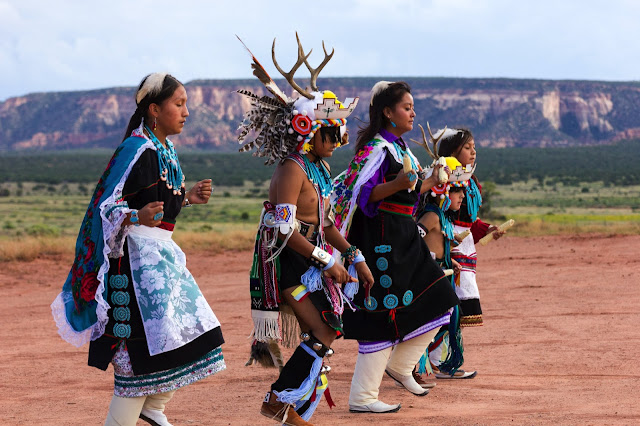Tribe Charges Discrimination Against Native Children
This article appeared in Rural America In These Times in 2017. For more on topics like this, see my book, American Apartheid: The Native American Struggle....
“I don’t want another generation to be pushed into suicide, addiction or prison,” said tribal executive board member Roxanne Gourneau, shown here, of the Fort Peck Indian Reservation, in northeastern Montana. The executive board, which represents the reservation's impoverished Sioux and Assiniboine tribes, has asked the U.S. Justice and Education departments to investigate treatment of Native students in the public schools of Wolf Point, a reservation town. White families obtained land here in years past and have since controlled the local economy, politics and educational system.
The tribal complaint alleges extreme disciplinary measures targeting Native children in the Wolf Point School District. These are accompanied by continual taunts and bullying by white administrators, teachers and students alike, as well as discriminatory employment practices that shut out Native teachers who might become role models, according to testimony gathered by the executive board and its attorney, Melina Healey.
“I don’t want another generation to be pushed into suicide, addiction or prison,” said tribal executive board member Roxanne Gourneau, shown here, of the Fort Peck Indian Reservation, in northeastern Montana. The executive board, which represents the reservation's impoverished Sioux and Assiniboine tribes, has asked the U.S. Justice and Education departments to investigate treatment of Native students in the public schools of Wolf Point, a reservation town. White families obtained land here in years past and have since controlled the local economy, politics and educational system.
The tribal complaint alleges extreme disciplinary measures targeting Native children in the Wolf Point School District. These are accompanied by continual taunts and bullying by white administrators, teachers and students alike, as well as discriminatory employment practices that shut out Native teachers who might become role models, according to testimony gathered by the executive board and its attorney, Melina Healey.
Healey cited federal protections against discrimination, as well as the federal government’s specific legal responsibilities to Native people as their trustee. However, Healey observed, the filing of the complaint is not intended to be adversarial, but rather to have the federal government play a role in a reconciliation process. “At the end of the day,” she said, “all tribal members want is for their children to be treated equally and fairly and to feel safe in school.”
The problem has long been known to the federal government. In 2003, the U.S. Department of Education’s investigated the Wolf Point schools and heard parent allegations ranging from overprescribing of Ritalin and use of a locked, isolation room for Native students to sexual abuse and incidents of racially charged cruelty by white students and staff. Scholars have associated these negative experiences with suicide and the school-to-prison pipeline. This appears to be borne out at Fort Peck, which has suffered many suicides of schoolchildren.
Enrollment data indicated that Native students leave the Wolf Point schools in disproportionate numbers. Statistics provided by the district data specialist for the school year 2012–13 show tribal children making up smaller proportions of the student body as they age: 72 percent of junior high students were Native, for example, while just 49 percent of high school students were—a difference of 23 percent.
The motivation for getting rid of Native children has an apparent economic link, says the complaint: they bring federal aid with them; however, the enrollment count that determines the level of that aid takes place at a point during the fall semester. Once the Native students have been tallied, they are pushed out via excessive discipline or exclusion from favorite sports; or they may be directly “advised” to leave. When they transfer to other reservation schools, the federal money does not follow them, burdening those schools’ budgets, according to the complaint.
Attorneys for the district have released a statement saying, “The Wolf Point Public School District is keenly aware of the challenges facing our students and in particular our Native American students. We recognize our students’ rights under Montana law and federal law to equal educational opportunity, and we strive diligently to meet our obligations under the law. We take claims of discrimination seriously and will cooperate with the federal agencies completely and promptly.”
In 2013, the Wolf Point School district settled an ACLU gerrymandering lawsuit that charged that the school rigged school-board voting-district boundaries to the disadvantage of Native voters. Many thought the settlement would mean real change. However, says the current complaint, the tribal members elected to the board in the wake of the suit find they aren’t told of meetings and are not included in informational emails.
“The problem is systemic,” said Gourneau. “After the ACLU suit was settled, some teachers and administrators left. But the new ones who took their places—even though they were from out of town, or out of state—took up similar discriminatory behaviors. It was like a magnet.”
Years of discrimination against Native children—from the violent compulsory boarding schools of generations past to the problems at Wolf Point today—have left deep wounds in the community, according to Gourneau. Her only son, Dalton, committed suicide in 2010 after suffering personally devastating and, he felt, unfair discipline at the school. Gourneau is terrified that her grandchildren could be next.
The problem has long been known to the federal government. In 2003, the U.S. Department of Education’s investigated the Wolf Point schools and heard parent allegations ranging from overprescribing of Ritalin and use of a locked, isolation room for Native students to sexual abuse and incidents of racially charged cruelty by white students and staff. Scholars have associated these negative experiences with suicide and the school-to-prison pipeline. This appears to be borne out at Fort Peck, which has suffered many suicides of schoolchildren.
Enrollment data indicated that Native students leave the Wolf Point schools in disproportionate numbers. Statistics provided by the district data specialist for the school year 2012–13 show tribal children making up smaller proportions of the student body as they age: 72 percent of junior high students were Native, for example, while just 49 percent of high school students were—a difference of 23 percent.
The motivation for getting rid of Native children has an apparent economic link, says the complaint: they bring federal aid with them; however, the enrollment count that determines the level of that aid takes place at a point during the fall semester. Once the Native students have been tallied, they are pushed out via excessive discipline or exclusion from favorite sports; or they may be directly “advised” to leave. When they transfer to other reservation schools, the federal money does not follow them, burdening those schools’ budgets, according to the complaint.
Attorneys for the district have released a statement saying, “The Wolf Point Public School District is keenly aware of the challenges facing our students and in particular our Native American students. We recognize our students’ rights under Montana law and federal law to equal educational opportunity, and we strive diligently to meet our obligations under the law. We take claims of discrimination seriously and will cooperate with the federal agencies completely and promptly.”
In 2013, the Wolf Point School district settled an ACLU gerrymandering lawsuit that charged that the school rigged school-board voting-district boundaries to the disadvantage of Native voters. Many thought the settlement would mean real change. However, says the current complaint, the tribal members elected to the board in the wake of the suit find they aren’t told of meetings and are not included in informational emails.
“The problem is systemic,” said Gourneau. “After the ACLU suit was settled, some teachers and administrators left. But the new ones who took their places—even though they were from out of town, or out of state—took up similar discriminatory behaviors. It was like a magnet.”
Years of discrimination against Native children—from the violent compulsory boarding schools of generations past to the problems at Wolf Point today—have left deep wounds in the community, according to Gourneau. Her only son, Dalton, committed suicide in 2010 after suffering personally devastating and, he felt, unfair discipline at the school. Gourneau is terrified that her grandchildren could be next.
“This is a critical moment for our children and for our tribe,” Gourneau said.
Text c. Stephanie Woodard; photo courtesy Roxanne Gourneau.
Text c. Stephanie Woodard; photo courtesy Roxanne Gourneau.


